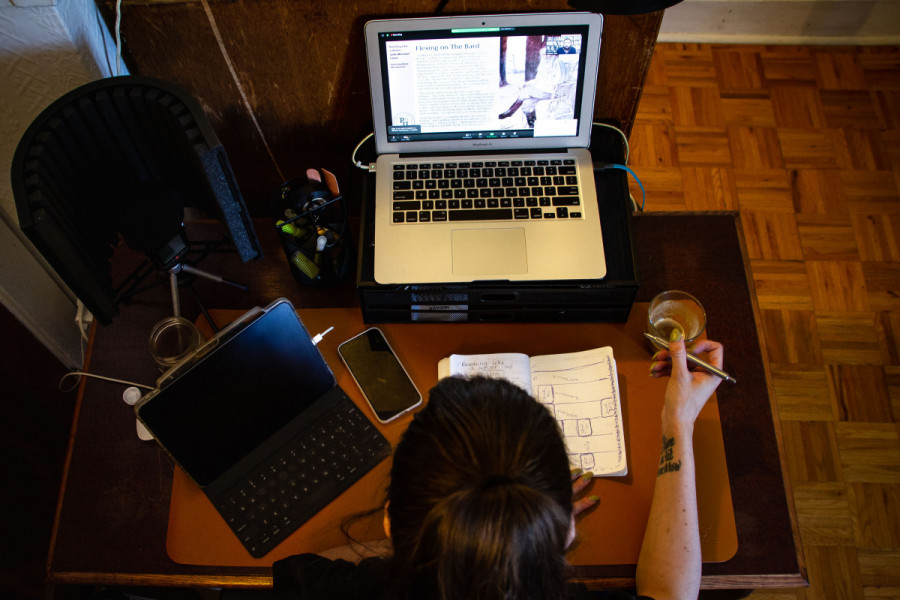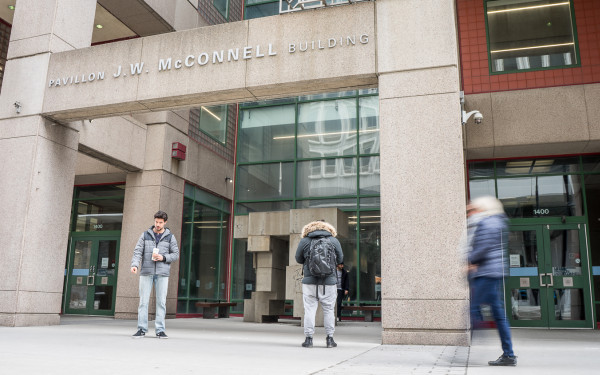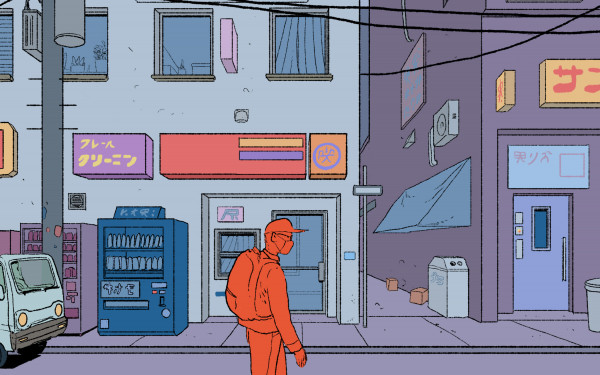Why I’m happy to stay home this fall
Concordia’s move to remote learning is the only way through the pandemic for students like me
At the start of this historically shitty year, I was in the hospital battling a flare-up of my illness for six weeks when I should have been meeting my classmates and book shopping.
The school year was already complicated for me by my health, and it would only unravel further for all of us as the pandemic landed in Montreal.
As a disabled student, I’m used to constantly weighing options and adjusting plans, so when Concordia announced that the fall 2020 semester would be online, I breathed a sigh of relief.
Disability is different for everyone: I happened to be born with a chronic illness called cystic fibrosis. CF is a fatal and hugely time-consuming disease. It also makes me high-risk for “severe COVID-19 outcomes,” meaning if I were to get coronavirus, chances are it would end in hospitalization, or worse.
Before Concordia’s announcement, I was dwelling on what the next academic year would look like for me.
My gut feeling was that I would pause my studies awaiting a vaccine. Correspondence education can suck, this I know too well, but this shift to online learning has alleviated some of the gravity of being disabled and vulnerable in a pandemic.
As a sick person, 2020 feels freakishly normal, like I’ve been training my whole life for this—staying away from people who could make me ill, spending weeks on end at home, and practicing strict disinfecting protocol.
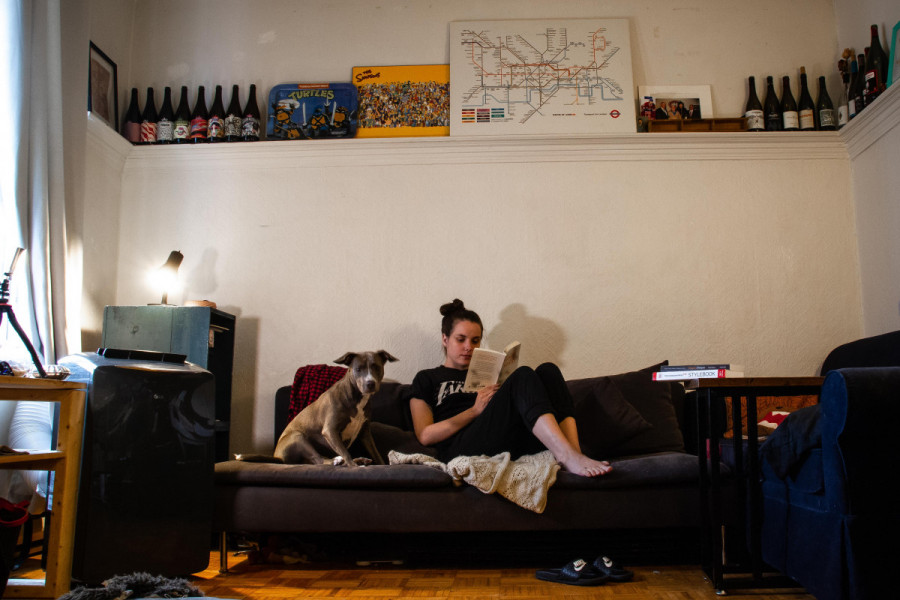
But it’s also a bit catastrophic, a long nightmare scenario where I can’t do anything or trust anyone.
School felt like one of those things I would just have to give up, so I’m happy Concordia’s online transition gives me that back.
I’ve been a student at Concordia going on four years now, most of it part-time, and I’ll probably be there at least two more years to complete my double major in journalism and Irish studies.
I can’t remember how many times I’ve been hospitalized during my undergrad, and I can say with near certainty it will happen again before my time at Concordia is up.
On top of these “tune-ups,” as I call my weeks-long stints of IV medications, my illness requires hours of daily treatments at home.
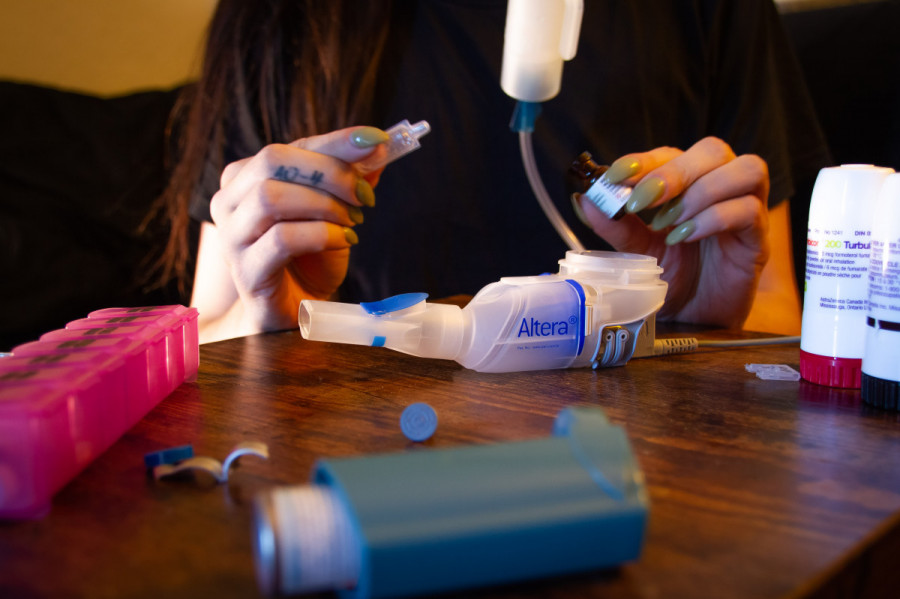
There are not many weeks that go by where I can say that I didn’t skip a single treatment, class, meal, much needed sleep, or have to cab to school to get it, or enough of it, all in.
When navigating illness and education, something always has to give.
I’m rarely too ill to follow lessons, do readings, or write, but I am very often too ill to rush through morning physiotherapy, or pack up and trek across town through a snowstorm on a Montreal bus, full of hand-coughers with their colds and flus, just to watch something I could have from my couch if I had access and control over my education.
“As a sick person, 2020 feels freakishly normal, like I’ve been training my whole life for this.”
Student life is punctuated by the flurry of a new semester, spring’s thaw into summer, or winding down into a cozy December with family, gathering readings, making introductions, adding and dropping courses ahead of that DISC deadline, and so on; so is mine, but there are some extra steps involved.
First, I go through the dusty corners of Concordia’s student portal to find the pages for students with disabilities.
Then, I “request accommodations,” which provides two things, neither of which actually do anything to make the education I receive as a disabled student the same as non-disabled students.
The first is an email that goes out to your teachers saying that you are registered with the Access Centre for Students with Disabilities and may need accomodations.
The second is access to notetakers, anonymous students that upload notes of iffy quality and frequency to the portal for you, but usually stop posting mid-term anyway. I usually just reach out to people personally for help.
There is the odd professor who runs a pristine Moodle, but they come up far less often than the teacher who responds to your request for a lesson outline with, “I don’t really do plans, I just kind of talk, you’ll have to share notes.”
This means the burden of accessing my education is still mine, whether I ask other students or my teachers to help me fill in the blanks of what I missed, or know I will miss if I have a “tune-up” booked or appointments on the horizon.
Then, I have to explain why I need the help, disclosing that I’m not well, or say nothing and look like the lazy student who expects others to share their work.
Part of my seasonal school routine is dropping courses and revising my graduation plan, guessing what the next few semesters will look like if I give myself a break in the short term.
Every time I get out of the hospital, a well-meaning friend or relative will ask, “Are you going to take the semester off?” I can’t blame them, it seems obvious: you get sick, you deal with it, you move on. Now, I’m getting this question about going back to school.
“No, I don’t want to take any more breaks,” I say, still wishing I could, and do some mental math to check if my abstract goal of graduating before I turn 30 is still possible. But with chronic illness you don’t really “get well,” you just constantly manage.
What is the best use of my energy this week? What risks am I willing to take, what tasks do I prioritize? Sure, I’m “lucky” to get extensions, but in an inflexible course designed to be completed in person, the extension is not the great equalizer you’d imagine it is.
My absence robs me of the quality of education, but also of connections and opportunities with my classmates. When you miss class for good reasons, you usually get saddled with the student that misses class for no reason.
Accommodations are just the minimum when it comes to making education accessible; it’s not equal if I have to ask, source, and plan it myself.
Because we’re going online, I won’t have to piece together my courses with the scraps for once.
This time things worked out for me, because Concordia is moving towards a model that finally suits me.
I don’t need to take another break, be afraid for my health, or settle for less of an education than my classmates. I know this model will bring up accessibility issues for other people too.
We’re not going to get it all right the first time or even all the time. We need to keep moving in this direction and actively consult with diverse student populations in how we design and deliver education long after we recover from 2020.
This article originally appeared in The Disorientation Issue, published September 8, 2020.

